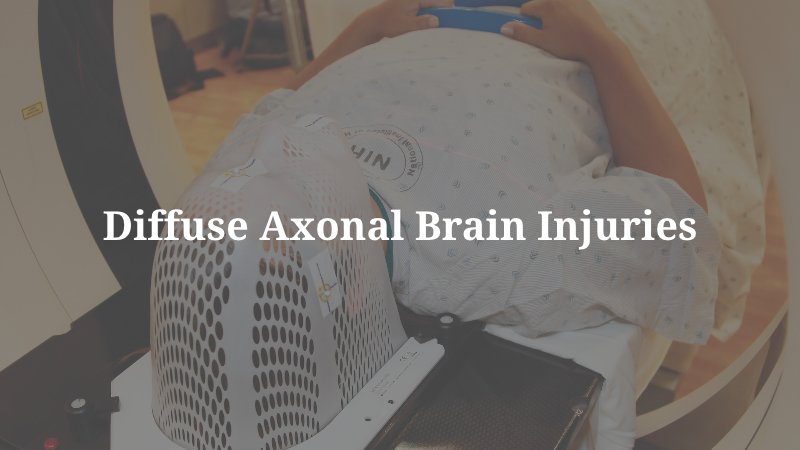Diffuse Axonal Brain Injuries
A diffuse axonal brain injury (DAI) occurs when connective neurological structures within the brain tear. A DAI is an extremely serious injury that can lead to permanent brain damage, coma, a persistent vegetative state, or death.
Most Common Causes of Diffuse Axonal Brain Injuries
Diffuse axonal brain injuries (DAIs) happen due to severe shaking or rotational forces. When jarring forces are strong enough, they cause the brain to collide with the inside surface of the skull. Common causes of DAIs include:
Falls
Falls are the leading source of brain injuries. Elderly adults and young children are at an exceptionally high risk of suffering a DAI in a fall. Examples of fall accidents include falling on a slippery surface, downstairs, off a ladder, from a bed, etc.
Motor Vehicle Accidents
DAIs can easily happen in car accidents, for instance, if a victim is thrown forward, then back, or against a solid surface, such as the dashboard.
Being Struck by or Against an Object
Another leading cause of brain injuries is when an individual is struck by or against an object—for instance, due to a falling object, which can cause a DAI if the force of impact is significant.
Shaken Baby Syndrome
A preventable form of physical abuse occurs when a person violently shakes an infant by the arms, shoulders, or legs.
DAI Symptoms

Individuals can experience a wide range of secondary effects from a DAI, at varying severities. The primary symptom is loss of consciousness. However, not everyone with a DAI loses consciousness. Other symptoms include the following:
- Cognitive issues, such as difficulty with memory, problem-solving, and decision-making.
- Confusion.
- Severe headaches from the inflammation of the brain.
- Nausea and vomiting may occur due to balance problems caused by cerebellum damage or as a result of severe headaches.
- Communication challenges if the areas of the brain responsible for motor control or language are affected.
- Weakness or paralysis, loss of balance, and/or abnormal muscle tone.
- Behavioral changes such as irritability, dependency, anxiety, depression, and mood swings.
- Dysautonomia refers to a malfunction of the autonomic nervous system, which controls unconscious bodily functions such as heart rate, digestion, and breathing.
- Fatigue.
- Low blood pressure.
- Dizziness.
- Anxiety attacks.
The symptoms an individual experiences depends on which areas of the brain are affected and the severity of axonal shearing.
DAI Grading System
The Adams classification of diffuse axonal injury is often used to describe the severity of a diffuse axonal injury. It includes three categories:
- Grade 1 (mild) means there is damage to the axons in the white matter of the cerebral cortex.
- Grade 2 (moderate) is damage to the axons in the white matter of the cerebral hemisphere and a focal lesion in the corpus callosum.
- Grade 3 (severe) is characterized by focal lesions in the corpus callosum and brainstem in addition to axonal damage in the white matter of the cerebral hemisphere.
Generally, the greater the damage from a DAI, the longer the duration of the coma. Survivors with a grade 3 DAI typically take two months to regain consciousness.
Have You or a Loved One Suffered a DAI in a Preventable Accident?
If you or a loved one has suffered a DAI in an accident caused by another party’s negligence, speak to an Atlanta Brain Injury Lawyer. They can discuss your legal options in a free consultation and help you recover the compensation you deserve.

